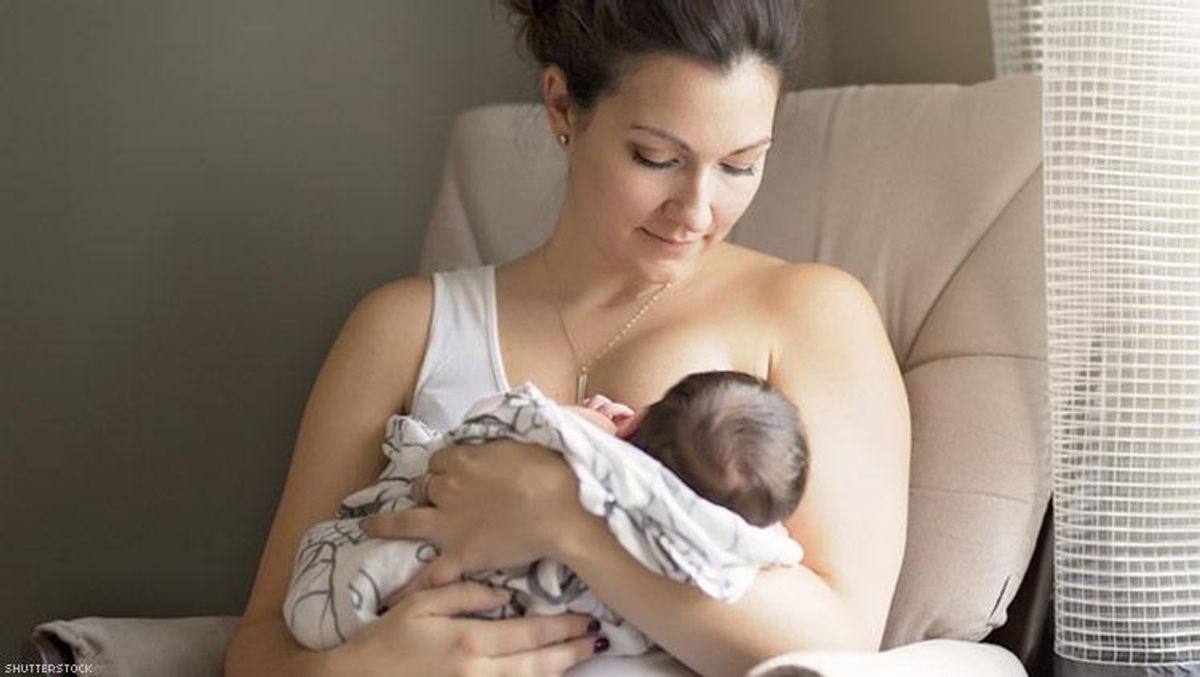Voices
Breast-Feeding in Public Is an LGBTQ Issue, So Let's Make It Easier

A California bill would assure that colleges and universities provide private breast-feeding stations.
Terez Yonan
August 21 2018 8:18 AM EST
October 31 2024 6:13 AM EST
By continuing to use our site, you agree to our Private Policy and Terms of Use.

A California bill would assure that colleges and universities provide private breast-feeding stations.
The act of nursing an infant is familiar to many people. Most of us have seen loved ones nursing their babies, walked by strangers nursing in public spaces, or nursed our children ourselves. Yet despite recent gains in gender equity, breast-feeding or chest-feeding (as it is sometimes referred to in trans* communities) has remained unnecessarily controversial.
As a physician who provides comprehensive reproductive health care, including to LGBTQIA people, I have been shocked by videos of breast-/chest-feeding parents being harassed in public. Parents should never face harassment for trying to provide this basic, life-sustaining care.
The American Academy of Pediatrics recommends breast-/chest-feeding, as it has many benefits. Some of the health benefits to infants include nutrition for growth, support of a developing immune system, and protection against infections. There are similarly powerful health benefits for the parent, including lower rates of postpartum bleeding and decreased risk of breast and ovarian cancers. Nursing families are sick less often, so parents miss less work and school. Breast-/chest-feeding is also environmentally friendly when compared to the production of infant formula. While this option is not the right fit for every family, every parent should be able to make this parenting decision freely, without institutional barriers.
For gender equity, health, and logistical reasons, parents should never have to enter restrooms to pump or to clean their pumping equipment. Restrooms on college campuses are seldom private and can lack electrical outlets near their stalls. Furthermore, restrooms pose a significant contamination risk, as pumping in unsanitary locations can transmit germs and bacteria to babies and cause life-threatening infections.
Furthermore, chest-feeding can be especially stigmatizing for trans* parents, who often face additional discrimination. We have seen reports nationwide about trans* people encountering prejudice and harassment for simply trying to use restrooms. Certainly, entering the "men's room" to pump or clean pumping equipment would add to a trans* person's burden. Trans* parents in particular should not have to risk harm that could be avoided if they had access to a private lactation room with a sink.
There are policies in place to protect breast-/chest-feeding parents by providing private spaces in various settings, including workplaces and high schools, but California's higher education system lags behind. When proper lactation accommodations are lacking, students are faced with unjust options: Nurse or pump in facilities that are not clean or private, stop lactation prematurely, miss class, or drop out of college. Some of my patients' grades have been affected due to the time they take to breast-feed, chest-feed, or pump.
This problem can be fixed. California's Assembly Bill 2785 will ensure that students have appropriate time, space, and facilities to nurse or pump milk without any academic risks or penalties.
We can help shed positive light on breast-/chest-feeding and pumping by supporting Assembly Bill 2785. This policy will keep California colleges and universities accountable and improve the resources available to nursing families. College and university students should have the same resources that are already available to high school students and working adults. Why not support California families by passing this bill? In the end, it is our community that benefits.
*The term trans* is an inclusive term used to describe people with transgender and gender-nonconforming identities.
TEREZ YONAN, DO, MPH, is an adolescent medicine specialist caring for young people in California and a fellow with Physicians for Reproductive Health.
Fans thirsting over Chris Colfer's sexy new muscles for Coachella